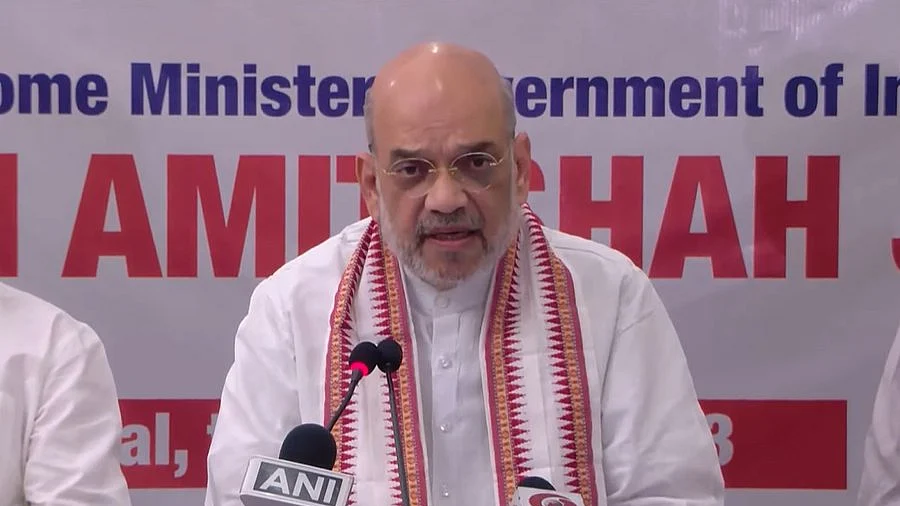Overhaul FCRA, cease harassment of NGOs, former civil servants to Amit Shah
More than 80 retired civil servants have written to the Union home minister, Amit Shah, to cease needless harassment of NGOs serving especially the most marginalised sections of the society

More than 80 retired civil servants have written to the Union home minister, Amit Shah, to cease needless harassment of NGOs serving especially the most marginalised and disadvantaged sections and to adopt a cooperative rather than an adversarial relationship with them.
Expressing their concern over the negative approach of the union government in the renewal of Foreign Contribution Regulation Act (FCRA) licences of nonprofits engaged in different sectors in India. They pointed out that it seems as though, using the FCRA, the union government seeks to deter civil society organisations from seeking funding from foreign sources, although such access to foreign funds, through other legally sanctioned means, is freely available to the private sector, digital and print media and political parties.
The cancellation of the FCRA licences of organisations and the initiation of punitive action by various law enforcement agencies of the Government of India is an outcome of the highly flawed provisions of the FCRA. All these restrictive and vaguely worded clauses in the FCRA have been used to act against organisations that take an independent view on economic, social and political issues, which may not be to the liking of the government, stated the letter.
Also Read: YWCA-Delhi, 2 other NGOs lose FCRA licences
Highlighting the cancellation of the FCRA licences of four well-known nonprofits — Commonwealth Human Rights Initiative (CHRI), Oxfam India, Centre for Policy Research (CPR) and Centre for Equity Studies (CES), civil servants wrote that the activities of these institutions were aimed at addressing the problems of food, work, wages, health and shelter of the most marginalised sections of Indian society.
Section 3 of the FCRA virtually prohibits the free expression of opinion by anyone associated with an NGO obtaining foreign contributions. Section 5 gives sweeping powers to the Government of India to declare any organisation as “of a political nature”, thereby rendering it ineligible to receive foreign contributions. The scope of Section 7 of the FCRA has been narrowed down, by its 2020 amendment, to prohibit transfer of foreign contributions from one FCRA-registered party to another.
All these restrictive and vaguely worded clauses in the FCRA have been used to act against organisations that take an independent view on economic, social and political issues, which may not be to the liking of the government, stated the letter.In the letter, they stressed that the union government should clarify how the non-profit organisations could access foreign contributions if every moment was spent in complying with restrictive legislative provisions. Every expression of difference of opinion or dissent cannot be construed as violating the integrity and sovereignty of the country or as being against public interest.
“The actions of your Ministry and the various law enforcement agencies give rise to a strong suspicion that independent assessments of or perspectives about socio-economic indicators of the country are not welcome,” stated the letter. It ill behoves a government professing adherence to democratic ideals to be intolerant of criticism of its policies and encourage its agencies to adopt intimidatory practices, such as searches, seizures, inquisitorial questioning and information leaks to the media aimed at damaging the reputation of these organisations in the minds of the public.
They pointed out that this deliberate denial of even this modicum of assistance or advocacy to them does not do credit to a government whose rallying cry is “sabka saath, sabka vikas, sabka vishwas”. The letter calls for a drastic overhaul of the FCRA to make it a facilitating rather than restrictive piece of legislation.
Here is the full letter with the signatories:
Follow us on: Facebook, Twitter, Google News, Instagram
Join our official telegram channel (@nationalherald) and stay updated with the latest headlines
